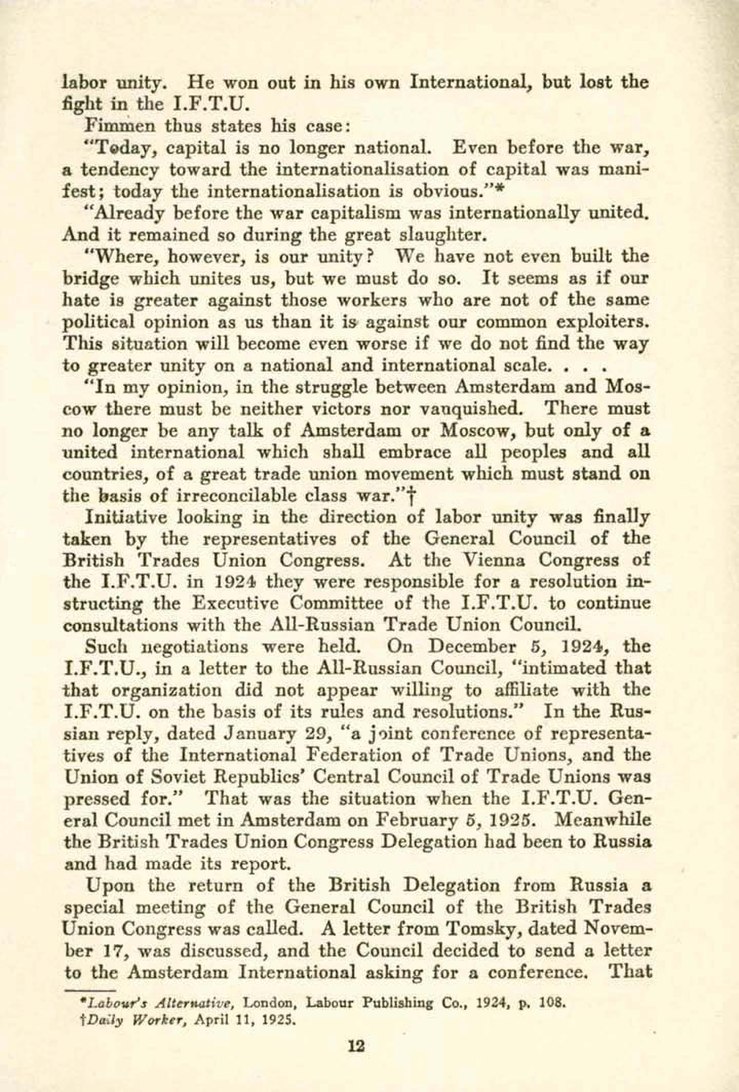labor unity. He won out in his own International, but lost the fight in the I.F.T.U.
Fimmen thus states his case:
"Today, capital is no longer national. Even before the war, a tendency toward the internationalisation of capital was manifest; today the internationalisation is obvious."[1]
"Already before the war capitalism was internationally united, And it remained so during the great slaughter.
"Where, however, is our unity? We have not even built the bridge which unites us, but we must do so. It seems as if our hate is greater against those workers who are not of the same political opinion as us than it is against our common exploiters. This situation will become even worse if we do not find the way to greater unity on a national and international scale. …
"In my opinion, in the struggle between Amsterdam and Moscow there must be neither victors nor vanquished. There must no longer be any talk of Amsterdam or Moscow, but only of a united international which shall embrace all peoples and all countries, of a great trade union movement which must stand on the basis of irreconcilable class war."[2]
Initiative looking in the direction of labor unity was finally taken by the representatives of the General Council of the British Trades Union Congress. At the Vienna Congress of the I.F.T.U. in 1924 they were responsible for a resolution instructing the Executive Committee of the I.F.T.U. to continue consultations with the All-Russian Trade Union Council.
Such negotiations were held. On December 5, 1924, the I.F.T.U., in a letter to the All-Russian Council, "intimated that that organization did not appear willing to affiliate with the I.F.T.U. on the basis of its rules and resolutions.” In the Russian reply, dated January 29, "a joint conference of representatives of the International Federation of Trade Unions, and the Union of Soviet Republics' Central Council of Trade Unions was pressed for." That was the situation when the I.F.T.U. General Council met in Amsterdam on February 5, 1925. Meanwhile the British Trades Union Congress Delegation had been to Russia and had made its report.
Upon the return of the British Delegation from Russia a special meeting of the General Council of the British Trades Union Congress was called. A letter from Tomsky, dated November 17, was discussed, and the Council decided to send a letter to the Amsterdam International asking for a conference, That
12
